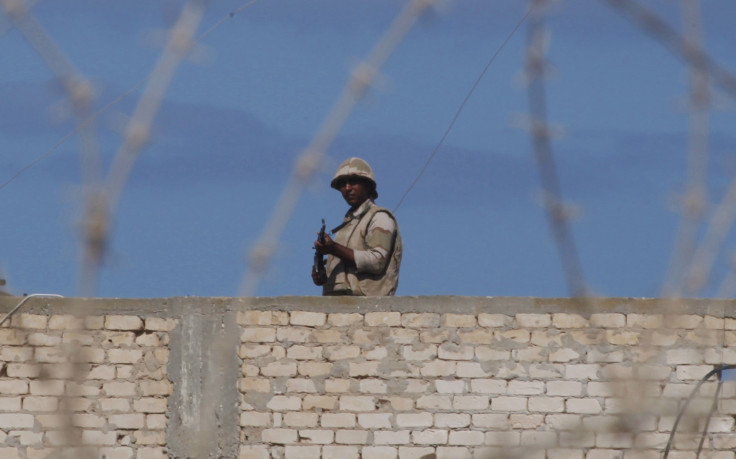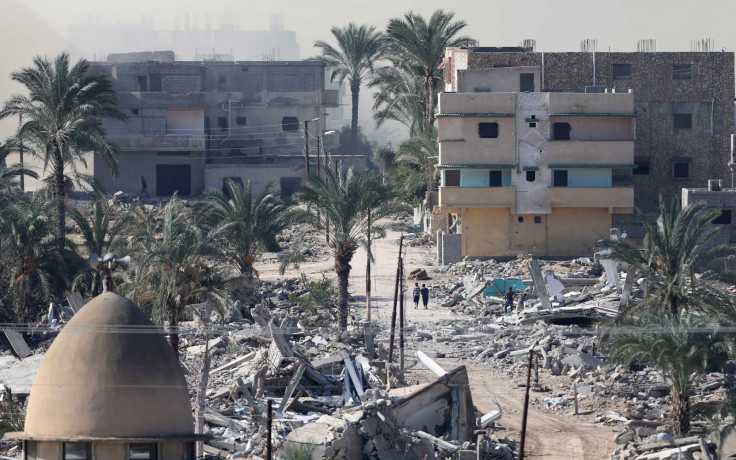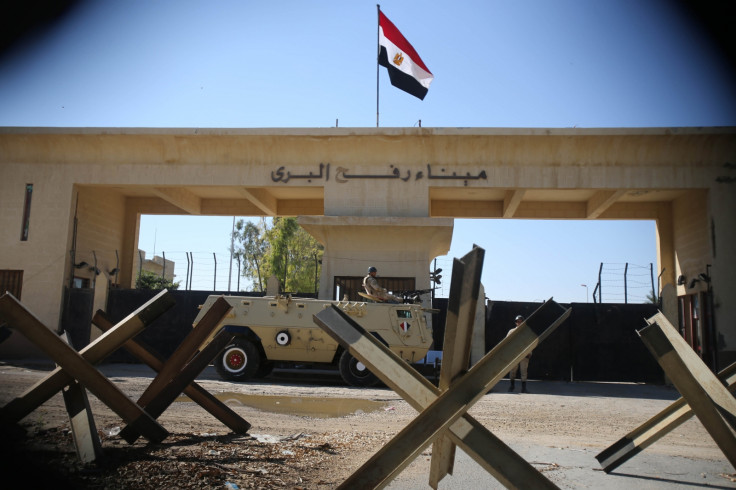Frontline Sinai: Egypt's Government Turning to Mass Relocation in Desperate Tunnel War

The Egyptian government is hoping that a buffer zone along its border will prevent militants and weapons being smuggled through underground tunnels, as the Sinai crisis continues to rage.
Last week, Egyptian forces began relocating thousands of citizens in Rafah, as they demolished their houses and began creating the buffer zone.
The Supreme Council of the Armed Forces and the Egyptian National Security Council, headed by President Abdel Fattah Al-Sisi, declared an emergency programme that includes a three-month state of emergency, a night-time curfew in parts of the Sinai Peninsula, the creation of a buffer zone and the closing of Rafah's border crossing.
This comes as part of a counter-insurgency response by the government to a militant attack on 25 October, which killed at least 31 Egyptian soldiers.
Although the government has claimed to be ending the spate of insurgent attacks which developed last year after the military coup against Former President Mohammed Morsi, Aswat Masriya's news website noted a significant rise in the number, and change in the nature, of attacks in Sinai during the last two months.
While attacks on security forces in Sinai from June to August 2014 constituted purely of shootings, the past two months have included 22 military assaults, of which five were bombing attacks.
The death toll of the past five months is 99 people - 70 security personnel and 29 civilians.
Relocation

The creation of the buffer zone between Egypt and Palestine had been discussed for more than a year, but was only implemented in late October 2014. Up to 10,000 people will be forced to relocate.
The demolitions started with orders to evacuate within 48 hours, including the curfew. Trucks and animals transported the displaced residents and their luggage to their relatives in neighbouring areas, or to the Desert Thaheer Housing Project, a temporary source of accommodation provided by the government.
Human rights advocates and a number of opposition activists said the evacuation process is unconstitutional as it contradicts Article 17 of the Universal Declaration of Human Rights, which states that "everyone has the right to own property alone as well as in association with others. No one shall be arbitrarily deprived of his property". Article 63 of the newly drafted 2014 Egyptian Constitution also prohibits "arbitrary forced displacement".
On the other hand, Nesrine Badawi, assistant professor at the Department of Political Science in the American University in Cairo, said that these laws do not always apply to certain situations.
"It is more complicated. Every country has laws that enable governments, under specific circumstances, to appropriate private property for public interest," Badawi added.
She said that if the residents in Rafah were notified and compensated, then the displacement is constitutional because it is not "arbitrary" or "forced".
Compensation
North Sinai's Governor Abdel Fattah Harhour told the state-run Middle East News Agency that 37 families who evacuated their houses have already received financial compensation.
He announced that EGP300 will be given to every family as a monthly housing allowance for a period of three months. Every square metre of concrete building demolished will be compensated with EGP1,200, while every metre of other construction with load bearing walls will be compensated with EGP700 and another EGP100 for every square metre of land on which buildings stand.

Tribal elders in North Sinai's Rafah expressed their dissatisfaction and asked for more compensation in their meeting with a presidential council recently formed by Al-Sisi. The Social Development Council, an advisory committee for Egypt's presidency, agreed that the compensation must be revised.
"People in Sinai are our families... When they are moved out of their residences, we are required to provide them with the adequate compensation," said Al-Sisi in a speech on 3 November.
Al-Sisi predicted that the cost of compensation paid to evacuate residents will reach EGP1-billion (£88m).
On the other hand, the government will forcefully demolish the houses of those who refuse to comply. Forced evacuation is especially critical in Sinai, a region that has historically been marginalised by Egyptian leaders. Even more, residents who sheltered tunnels under their houses will not be given any compensation
The Islamic Trust, popularly known as the Egyptian Waqf, announced it will dismiss any Muslim cleric if tunnels are found below the mosques in which they serve.
Tunnels
The 500-metre deep buffer zone will extend along the 10km border with Gaza, and will have water-filled trenches to prevent the re-digging of tunnels, which the government recognises as one of the biggest threats to Egypt's national security.
The smuggling tunnels have been used to provide Palestinians with access to goods normally restricted, and to bypass the blockade imposed by Israel on the Gaza Strip since 2007. Authorities said the illegal tunnels are used to pass people, weapons and drugs across the border.
Rafah Border
Meanwhile, Hamas, the ruling power in the Palestinian territory, urged the Egyptian authorities to reopen the Rafah border crossing, which has been closed for two weeks. This would help the approximately 2 million citizens of Gaza, since Israel has closed the two crossings under its control.
The continued blockade on the Gaza Strip violates the Egyptian-engineered cease-fire between Hamas and Israel. It is also reinforcing the on-going siege on the Gaza strip.
Eyad Al-Bazam, spokesman for Hamas's Interior Ministry, warned that the closure of the Rafah border will "aggravate the suffering of thousands of patients and students", as well as preventing humanitarian cases from leaving the Gaza Strip.
The Gaza Strip currently has three border crossings after Israel closed the other four in 2007. Two of these crossings - the Kerem Shalom crossing and the Gaza-Israel Erez crossing - are controlled by Israel and were shut down last Sunday after an alleged rocket attack from the Palestinian enclave.
The third - the Rafah crossing - is controlled by Egypt, and has been closed for a total of 189 days in 2014 so far.
© Copyright IBTimes 2025. All rights reserved.





















